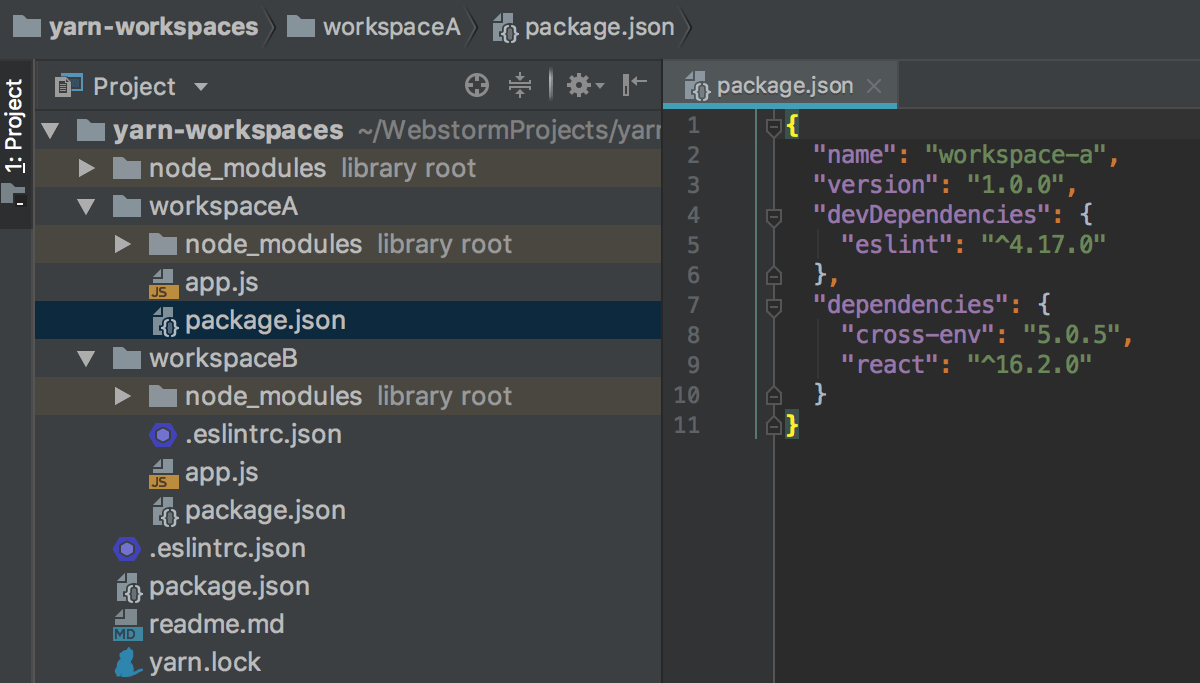

If pnpm is able to find out which dependencies are causing the cycles, it will display them too. If pnpm detects cyclic dependencies during installation, it will produce a warning. Pnpm cannot guarantee that scripts will be run in topological order if there are cycles between workspace dependencies.
#Pnpm workspaces how to
However, there are 2 well tested tools that handle versioning and support pnpm:įor how to set up a repository using Rush, read this page.įor using Changesets with pnpm, read this guide. Versioning packages inside a workspace is a complex task and pnpm currently does not provide a built-in solution for it. This feature allows you to depend on your local workspace packages while still being able to publish the resulting packages to the remote registry without needing intermediary publish steps - your consumers will be able to use your published workspaces as any other package, still benefitting from the guarantees semver offers. The above example will become: "bar": Referencing workspace packages through their relative path If you want to use a different alias, the following syntax will work too: "bar": publish, aliases are converted to regular aliased dependencies. Usually, you would reference it as "foo": "workspace:*". Let's say you have a package in the workspace named foo.

Referencing workspace packages through aliases In that case, pnpm will only link packages from the workspace if the workspace: protocol is used. These files will guide the automatic release process to npm and generate changelog information. If the changes require version bumps, run npm run changeset to generate a changeset file. This feature uses PNPM to perform the entire monorepo.
#Pnpm workspaces install
Update code Write your code as normal on a feature branch and commit those changes. If true, then rush install will use the PNPM workspaces feature to perform the install. This protocol is especially useful when the link-workspace-packages option is set to false. npm-workspaces-example lerna-example Publishing Packages Flow 1. So, if you set "foo": "workspace:2.0.0", this time installation will fail because isn't present in the workspace. When this protocol is used, pnpm will refuse to resolve to anything other than a local workspace package. Luckily, pnpm supports the workspace: protocol. This behavior introduces some uncertainty. However, if bar has "foo": "2.0.0" in dependencies and is not in the workspace, will be installed from the registry. For instance, is linked into bar if bar has "foo": "^1.0.0" in its dependencies.

Workspace protocol (workspace:) īy default, pnpm will link packages from the workspace if the available packages match the declared ranges. There's an article about bit install that talks about it: Painless Monorepo Dependency Management with Bit. Bit uses pnpm under the hood but automates a lot of the things that are currently done manually in a traditional workspace managed by pnpm/npm/Yarn. When it is set to true, non-applied patches will not cause an error, just a warning will be printed.If you are looking into monorepo management, you might also want to look into Bit. A new setting supported in the pnpm section of the package.json file: allowNonAppliedPatches. Monorepo lerna + yarn workspace / pnpm MonorepoLerna npm monorepo lerna + yarn workspacepnpmpnpm VS lerna + yarn workspace monorepo workspace.


 0 kommentar(er)
0 kommentar(er)
